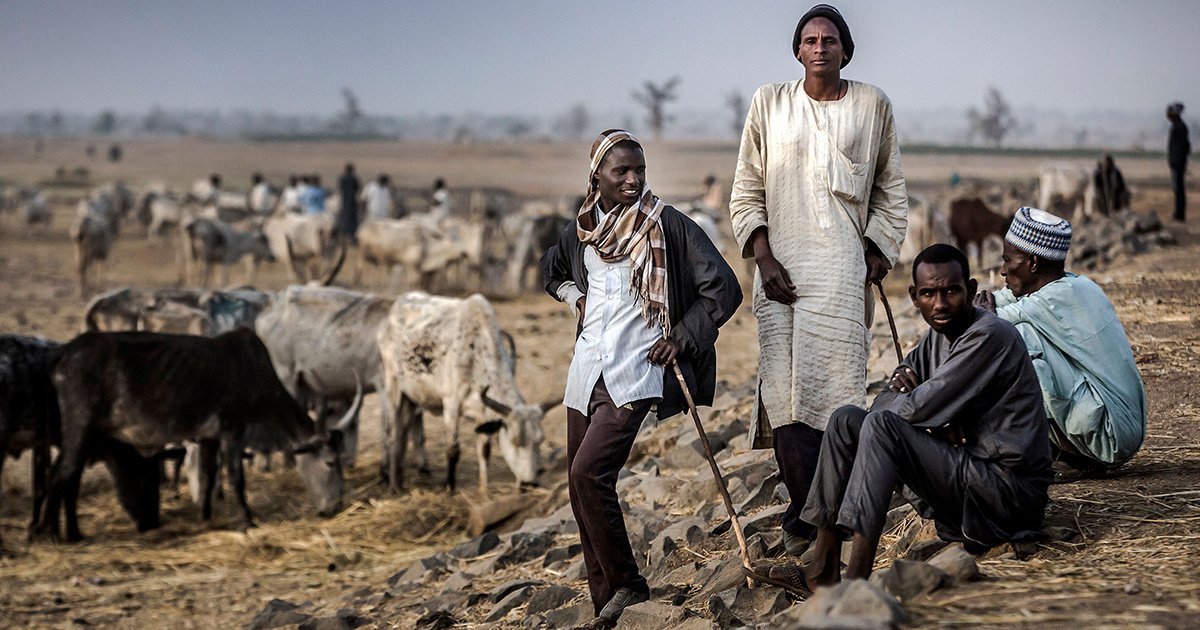

Nigeria: The Crucible of Faith and Power
Basic Facts:
Religious conflict in Nigeria is not a standalone phenomenon but a rather complex interplay in a deeper matrix of historical grievance, political competition, and economic struggle. The modern Nigerian state is a colonial construct, amalgamating hundreds of distinct ethnic groups with divergent historical experiences. The introduction of Islam via the Sokoto Caliphate in the north and Christianity through European missionaries in the south created a rough, though not absolute, religious divide that maps onto the country’s geography. The end of colonial rule and the subsequent struggle for political power often took on a religious dimension, particularly as the north sought to protect its cultural and religious identity within a secular state. The emergence of Boko Haram (literally translated as “Western education is forbidden”) in 2009 represents the most violent manifestation of this tension. Founded by Mohammed Yusuf, the group exploits widespread poverty, state corruption, and a sense of political alienation among northern Muslim youth to wage a brutal insurgency aimed at establishing an Islamic state.
However, reducing the conflict solely to Boko Haram obscures a wider pattern of violence: persistent farmer-herder clashes in the Middle Belt, often along ethno-religious lines, and recurring sectarian riots in cities like Kaduna and Jos. These conflicts are frequently catalyzed by disputes over land, resources, and local political control, with religious identity serving as a potent and mobilizing fault line.
Perspectives:
The Mainstream Muslim Perspective: The vast majority of Nigerian Muslims condemn Boko Haram’s tactics and ideology as a grotesque perversion of Islam. They view the group not as a religious vanguard but as a criminal enterprise that has brought untold suffering to Muslim communities, who constitute the majority of the insurgency’s victims. For many, the deeper grievance is one of systemic neglect by the central government, which has failed to provide economic opportunity, education, or security in the north, creating the fertile ground of desperation that extremists exploit.
The Christian Perspective: For many Christian communities in the north and Middle Belt, the violence is experienced as a persistent campaign of persecution aimed at their eradication or subjugation. Attacks on churches, the kidnapping of schoolgirls, and the destruction of Christian villages foster a profound sense of siege and ethnic cleansing. This perception is compounded by a belief that the state, often hesitant to confront extremism decisively, is complicit through its inaction or bias, leaving communities to feel they must rely on their own defense mechanisms.
The Governmental & International Perspective: The Nigerian state is caught in a dilemma. Its military campaigns against Boko Haram have been criticized for human rights abuses that further alienate local populations. Internally, it is perceived as a weak and ineffective or even as a partisan actor in intercommunal conflicts. The international community views the situation through the lenses of counterterrorism, humanitarian crisis, and human rights, often struggling to address the root causes—governance failures, poverty, and climate change exacerbating resource competition—while responding to immediate security threats.
Philosophical Approach:
Central Question: In a pluralistic society, where does the right to religious freedom end and the duty of the state to protect its citizens from religiously-motivated violence begin? This question strikes at the heart of the social contract, probing the limits of tolerance and the state’s monopoly on legitimate force when faith is weaponized.
John Stuart Mill’s Harm Principle: Mill’s seminal principle states that “the only purpose for which power can be rightfully exercised over any member of a civilized community, against his will, is to prevent harm to others.” This provides a clear, liberal framework: religious expression is inviolable until it directly incites or constitutes violence. Boko Haram’s actions unequivocally cross this line. However, the greater challenge lies in the application. An overzealous state response that profiles all Muslims and restricts peaceful religious practice in the name of security commits a different kind of harm, violating the liberty of the innocent and potentially fueling the very resentment extremists feed on, thereby only strengthening the narrative of the extremists they are countering.
Thomas Hobbes and the Leviathan: Hobbes argued that in the absence of a powerful sovereign (a "Leviathan"), human life would be “solitary, poor, nasty, brutish, and short.” Nigeria’s conflict can be seen as a manifestation of a partial Leviathan—a state that is strong enough to be oppressive in its tactics but too weak to consistently uphold its fundamental duty of providing physical security for all its citizens. The emergence of vigilante groups and self-defense militias among both Christian and Muslim communities is a direct result of this failure, representing a Hobbesian regression into a state of nature where individuals take the responsibility for their protection into their own hands.
Jürgen Habermas and the Public Sphere: German philosopher Jürgen Habermas’s theory of the public sphere emphasizes rational-critical debate as the foundation of a healthy democracy. In Nigeria, this space for dialogue is often corrupted by what political theorist Chantal Mouffe calls “antagonistic” rather than “agonistic” politics—where opponents are seen as enemies to be destroyed rather as adversaries within a shared political ecosystem. When political and religious differences become antagonistic, the result is not debate but devastation. The path forward requires building institutions that can transform these antagonisms into agonistic, respectful disagreements managed through law and politics, not militancy.
Conclusion:
The Nigerian dilemma demonstrates that religious freedom cannot exist without security, and security cannot be sustainable if it undermines freedom. The state’s ultimate responsibility is to navigate this paradox with impeccable impartiality—to be powerful enough to dismantle violent extremist networks and protect communities yet restrained and just enough to ensure that in doing so, it does not become an engine of the very oppression and alienation that fuels the conflict. The goal is not the defeat of a religion, but the defense of a pluralistic public square where all faiths can coexist under the equal protection of a neutral law.
Religious conflict in Nigeria is not a standalone phenomenon but a rather complex interplay in a deeper matrix of historical grievance, political competition, and economic struggle. The modern Nigerian state is a colonial construct, amalgamating hundreds of distinct ethnic groups with divergent historical experiences. The introduction of Islam via the Sokoto Caliphate in the north and Christianity through European missionaries in the south created a rough, though not absolute, religious divide that maps onto the country’s geography. The end of colonial rule and the subsequent struggle for political power often took on a religious dimension, particularly as the north sought to protect its cultural and religious identity within a secular state. The emergence of Boko Haram (literally translated as “Western education is forbidden”) in 2009 represents the most violent manifestation of this tension. Founded by Mohammed Yusuf, the group exploits widespread poverty, state corruption, and a sense of political alienation among northern Muslim youth to wage a brutal insurgency aimed at establishing an Islamic state.
However, reducing the conflict solely to Boko Haram obscures a wider pattern of violence: persistent farmer-herder clashes in the Middle Belt, often along ethno-religious lines, and recurring sectarian riots in cities like Kaduna and Jos. These conflicts are frequently catalyzed by disputes over land, resources, and local political control, with religious identity serving as a potent and mobilizing fault line.
Perspectives:
The Mainstream Muslim Perspective: The vast majority of Nigerian Muslims condemn Boko Haram’s tactics and ideology as a grotesque perversion of Islam. They view the group not as a religious vanguard but as a criminal enterprise that has brought untold suffering to Muslim communities, who constitute the majority of the insurgency’s victims. For many, the deeper grievance is one of systemic neglect by the central government, which has failed to provide economic opportunity, education, or security in the north, creating the fertile ground of desperation that extremists exploit.
The Christian Perspective: For many Christian communities in the north and Middle Belt, the violence is experienced as a persistent campaign of persecution aimed at their eradication or subjugation. Attacks on churches, the kidnapping of schoolgirls, and the destruction of Christian villages foster a profound sense of siege and ethnic cleansing. This perception is compounded by a belief that the state, often hesitant to confront extremism decisively, is complicit through its inaction or bias, leaving communities to feel they must rely on their own defense mechanisms.
The Governmental & International Perspective: The Nigerian state is caught in a dilemma. Its military campaigns against Boko Haram have been criticized for human rights abuses that further alienate local populations. Internally, it is perceived as a weak and ineffective or even as a partisan actor in intercommunal conflicts. The international community views the situation through the lenses of counterterrorism, humanitarian crisis, and human rights, often struggling to address the root causes—governance failures, poverty, and climate change exacerbating resource competition—while responding to immediate security threats.
Philosophical Approach:
Central Question: In a pluralistic society, where does the right to religious freedom end and the duty of the state to protect its citizens from religiously-motivated violence begin? This question strikes at the heart of the social contract, probing the limits of tolerance and the state’s monopoly on legitimate force when faith is weaponized.
John Stuart Mill’s Harm Principle: Mill’s seminal principle states that “the only purpose for which power can be rightfully exercised over any member of a civilized community, against his will, is to prevent harm to others.” This provides a clear, liberal framework: religious expression is inviolable until it directly incites or constitutes violence. Boko Haram’s actions unequivocally cross this line. However, the greater challenge lies in the application. An overzealous state response that profiles all Muslims and restricts peaceful religious practice in the name of security commits a different kind of harm, violating the liberty of the innocent and potentially fueling the very resentment extremists feed on, thereby only strengthening the narrative of the extremists they are countering.
Thomas Hobbes and the Leviathan: Hobbes argued that in the absence of a powerful sovereign (a "Leviathan"), human life would be “solitary, poor, nasty, brutish, and short.” Nigeria’s conflict can be seen as a manifestation of a partial Leviathan—a state that is strong enough to be oppressive in its tactics but too weak to consistently uphold its fundamental duty of providing physical security for all its citizens. The emergence of vigilante groups and self-defense militias among both Christian and Muslim communities is a direct result of this failure, representing a Hobbesian regression into a state of nature where individuals take the responsibility for their protection into their own hands.
Jürgen Habermas and the Public Sphere: German philosopher Jürgen Habermas’s theory of the public sphere emphasizes rational-critical debate as the foundation of a healthy democracy. In Nigeria, this space for dialogue is often corrupted by what political theorist Chantal Mouffe calls “antagonistic” rather than “agonistic” politics—where opponents are seen as enemies to be destroyed rather as adversaries within a shared political ecosystem. When political and religious differences become antagonistic, the result is not debate but devastation. The path forward requires building institutions that can transform these antagonisms into agonistic, respectful disagreements managed through law and politics, not militancy.
Conclusion:
The Nigerian dilemma demonstrates that religious freedom cannot exist without security, and security cannot be sustainable if it undermines freedom. The state’s ultimate responsibility is to navigate this paradox with impeccable impartiality—to be powerful enough to dismantle violent extremist networks and protect communities yet restrained and just enough to ensure that in doing so, it does not become an engine of the very oppression and alienation that fuels the conflict. The goal is not the defeat of a religion, but the defense of a pluralistic public square where all faiths can coexist under the equal protection of a neutral law.
